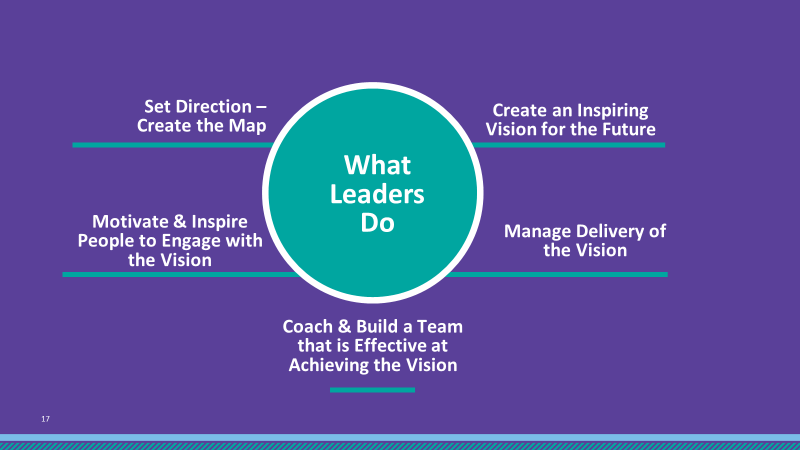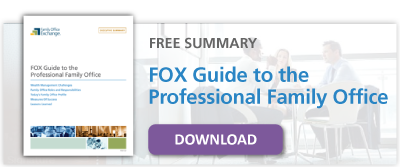Creating an Effective Team for the Family Office

The biggest asset of any family office is the staff that supports the family clients. Over the last couple of years, creating an effective team for the family office is an issue that comes up frequently from executives who participate in FOX Council groups and our broader family office members. Many family offices do not have an in-house human resource expert to help them address many of these issues.
At the 2018 FOX Family Office Forum, we invited two very experienced family office human resource executives, Cassie Atteberry and Bonnie Gauger, to talk about the elements and processes to consider in building an effective team that delivers the best client experience for the family. The following is a summary of key takeaways from their session.
The Foundation
The basic foundation of building an effective family office team includes culture, talent, leadership. All of these areas are interconnected to each other. If you don’t have a strong foundation, no matter how well you do other parts of human resources, you will always get sub-optimal results.
Culture
As defined by Ravasi and Schultz in The Academy of Management Journal (2006), organizational culture is a set of shared assumptions that guide what happens in organizations by defining appropriate behavior for various situations. Thus, organizational culture affects the way people and groups interact with each other, with clients, and with stakeholders. In addition, organizational culture may affect how much employees identify with an organization. “Culture eats strategy for breakfast”, a phrase originated by Peter Drucker and made famous by former Ford Motor Company CEO Mark Fields, is an absolute reality! Any company disconnecting the two are putting their success at risk. Below is an illustration of the byproducts of an office's culture:

Source: Creating an Effective Team for the Family Office
Culture is necessary for an organization and its employees to thrive. Culture is going to happen so be deliberate about defining the culture of the office. In order to define what is needed and bring it to life consider the following steps:
1. Get clarity of purpose
2. Assess current state
3. Define future state
4. Build and live embedment plan
Leadership
Leadership in a family office is critical to creating and maintaining the culture, building a team, and nurturing talent. Research published in Harvard Business Review in 2000 and an article on Mind Tools listed some common leadership styles:
- Coercive: Leaders demand immediate compliance
- Authoritative: Leaders mobilize people toward a vision
- Affiliative: Leaders create emotional bonds and harmony
- Democratic: Leaders build consensus through participation
- Pacesetting: Leaders expect excellence and self-direction
- Coaching: Leaders develop people for the future
As illustrated below leaders are responsible for:

Source: Creating an Effective Team for the Family Office
There is a difference between leadership and management. Leadership means the ability of an individual to influence, motivate, and enable others to contribute toward the effectiveness and success of the organization of which they are members. While management comprises directing and controlling a group of one or more people or entities for the purpose of coordinating and harmonizing that group towards accomplishing a goal. Leadership is an essential function of management which helps to maximize efficiency and to achieve office goals in alignment with the family goals.
Talent
One of the greatest challenges a leader of the office has is to create a team that works well together and trusts one another. Great teams don't just happen. Those teams that fit together like puzzle pieces are the result of hard work and thoughtful leadership. What exactly are the things you need to look for when putting together a highly effective team? Consider the following:
- The right skills
- Attitude: Positive, open and flexible
- Trust
- Mutual respect
- Accountability to team over individual
- Balance of strengths and styles
Talent is defined as a natural aptitude or skill. As Wallace Stegner notes, “Talent can’t be taught but it can be awakened.” As a leader, you may be tempted to hire an individual, or keep him in your organization, based on talent alone. Unfortunately, this might be a recipe for disaster. To make a difference, talented people need to be given the right roles and responsibilities and proper direction. Most of all, they need to be properly aligned to advance an office’s long-term goals.
Cassie Atteberry and Bonnie Gauger suggested 3 areas to consider when addressing talent:
- Assess
- Develop a discerning “nose for talent”
- Hire for culture fit in addition to technical skill
- Differentiate between the contributions among employees
- Address
- Manage underperformance
- Re-recruiting/retention conversations with those you are most interested in retaining
- Give on-going, informal feedback
- Managerial courage to set someone up for success
- Coach – a lot!
- Amplify
- Understand career aspirations
- Co-create development plans to both close gaps and build strengths
- Over invest in top performers and put them in highest impact roles
In subsequent months, look for blog posts going into much more detail on each of the four foundations of building an effective family office team.
Resources
Below please find a list of recommended resources that Bonnie and Cassie have personal experience utilizing over their respective careers to meet a variety of needs.
Books:
- Lencioni, Patrick. The Five Dysfunctions of a Team: Team Assessment. Pfeiffer, 2007.
- Barger, Jason. Thermostat Cultures. One Love Pub, 2016.
- Patterson, Kerry, et al. Crucial Conversations: Tools for Talking When Stakes Are High. McGraw-Hill Education, 2012.
- Baker, Tim. The End of the Performance Review: A New Approach to Appraising Employee Performance. Palgrave Macmillan, 2013.
- Rath, Tom. StrengthsFinder 2.0. Gallup Press, 2017.
- Effron, Marc, and Miriam Ort. One Page Talent Management: Eliminating Complexity, Adding Value. Harvard Business Review Press, 2018.
- Wakeman, Cy. Reality-Based Leadership: Ditch the Drama, Restore Sanity to the Workplace, and Turn Excuses into Results. Jossey-Bass, 2010. (Excellent for teams looking to reduce drama and become more effective by focusing on facts).
Coaches and Training:
- Fierce is a global leadership development and training company that changes the way people communicate with each other. Excellent models for coaching and having difficult conversations.
- Greg McCann is a consultant, coach, and author who helps generate positive changes in careers and personal lives by helping people deepen their relationships and strengthen their integrity. Specializes in family enterprise consulting.
- Nicole Price is an executive coach and trainer helping people understand their leadership style and build highly engaged and inclusive teams
